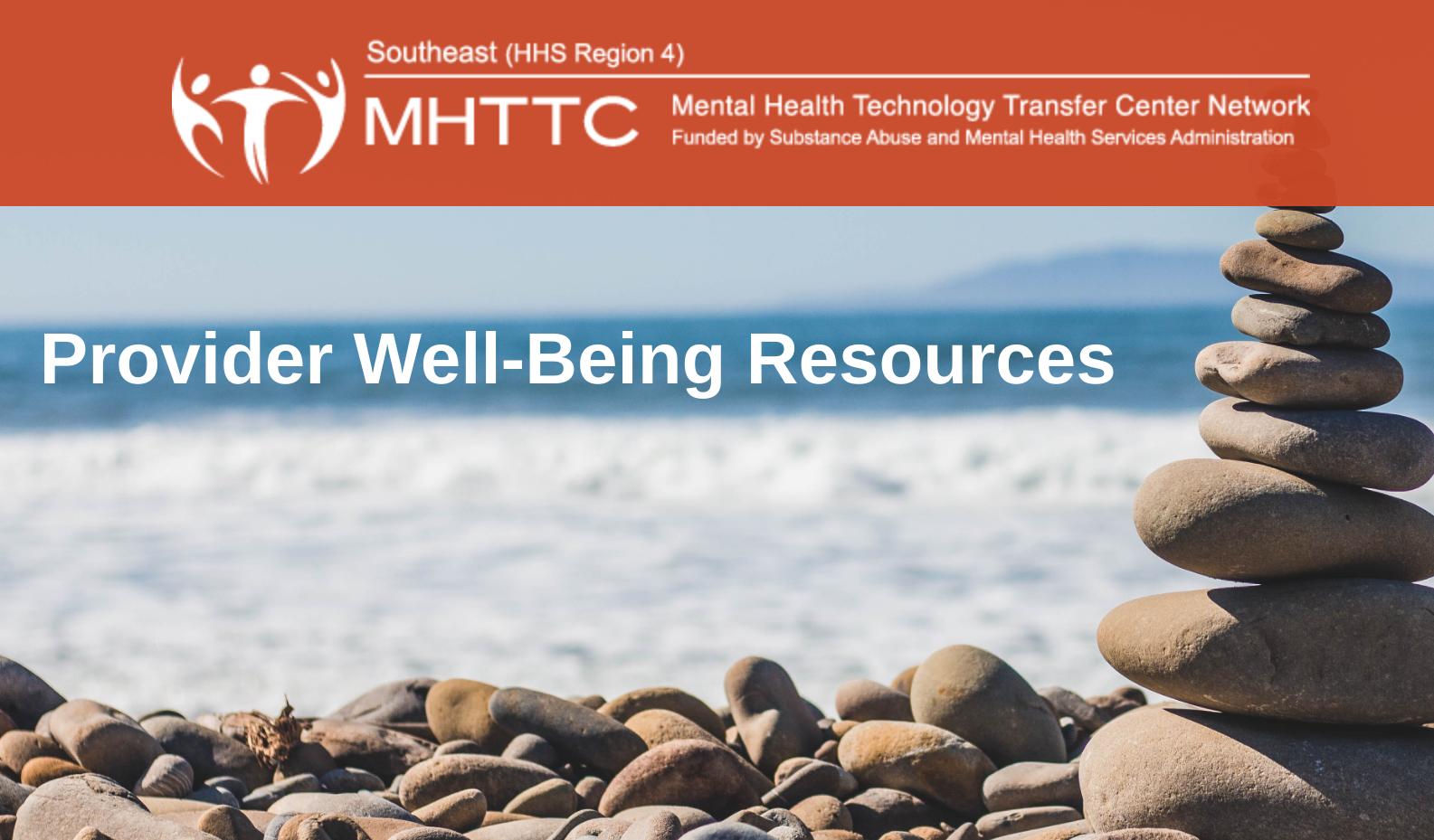Home > Southeast MHTTC Provider Wellbeing

The Southeast MHTTC understands the need for wellness approaches at both the provider level and at the organization level. We are devoted to providing resources and technical assistance to providers looking to enhance personal and professional resilience and to organizations seeking to improve wellness programs, culture, and structures. Learn more about our provider wellness resources by clicking on the links below.